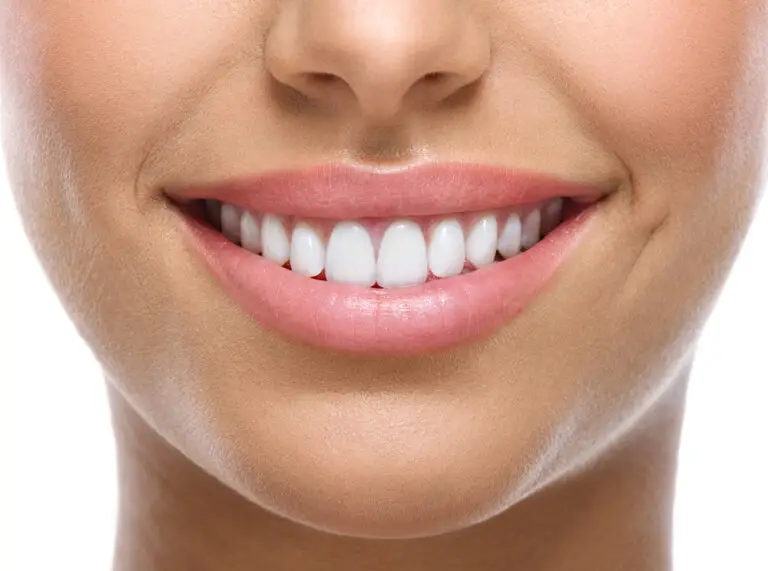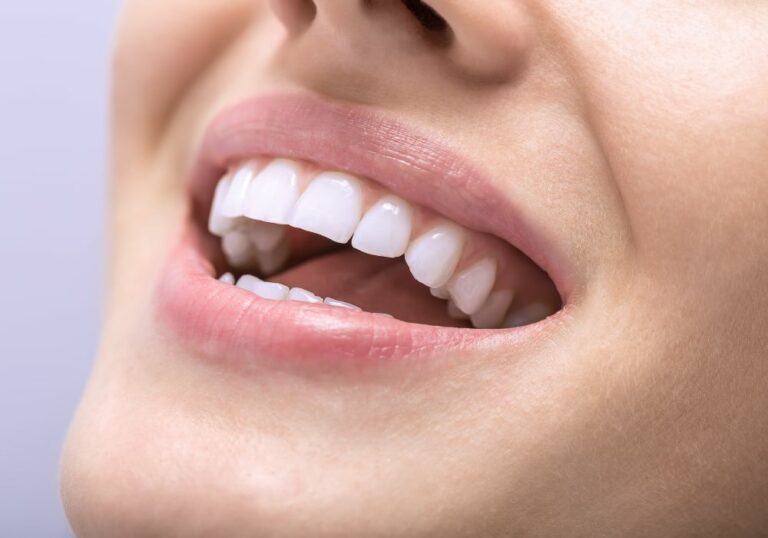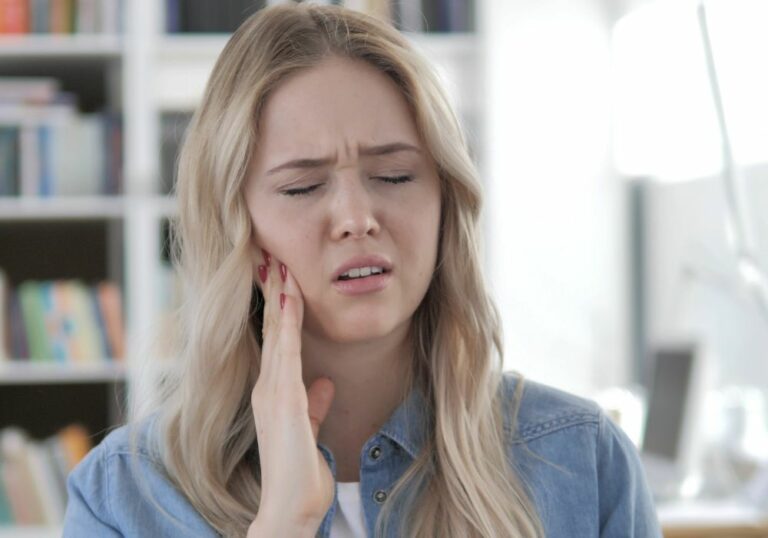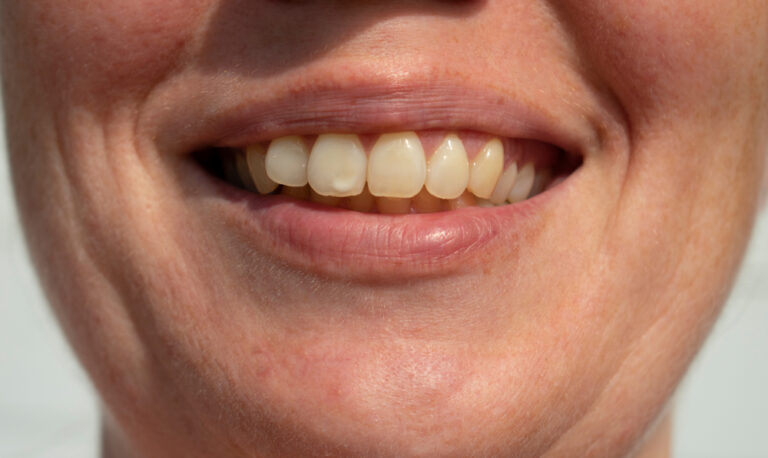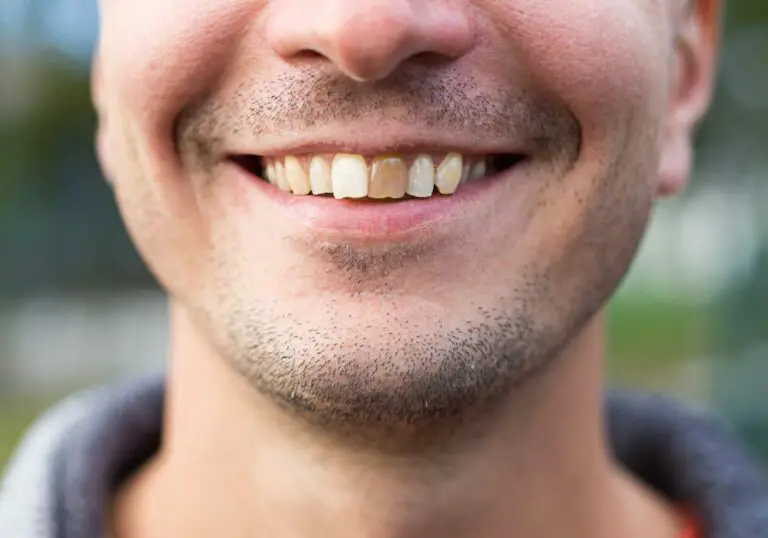Are you wondering if you should brush your teeth before bed and when you wake up? The answer is a resounding yes! Brushing your teeth twice a day is essential for maintaining good oral hygiene. It helps to remove plaque, prevent cavities, and keep your breath fresh.
Brushing your teeth before bed is especially important. During the day, food particles and bacteria accumulate in your mouth, producing acids that can damage your tooth enamel. If you don’t brush before bed, these bacteria will continue to multiply and produce even more acid, leading to tooth decay and gum disease. By brushing before bed, you can remove these harmful substances and protect your teeth while you sleep.
Importance of Brushing Teeth
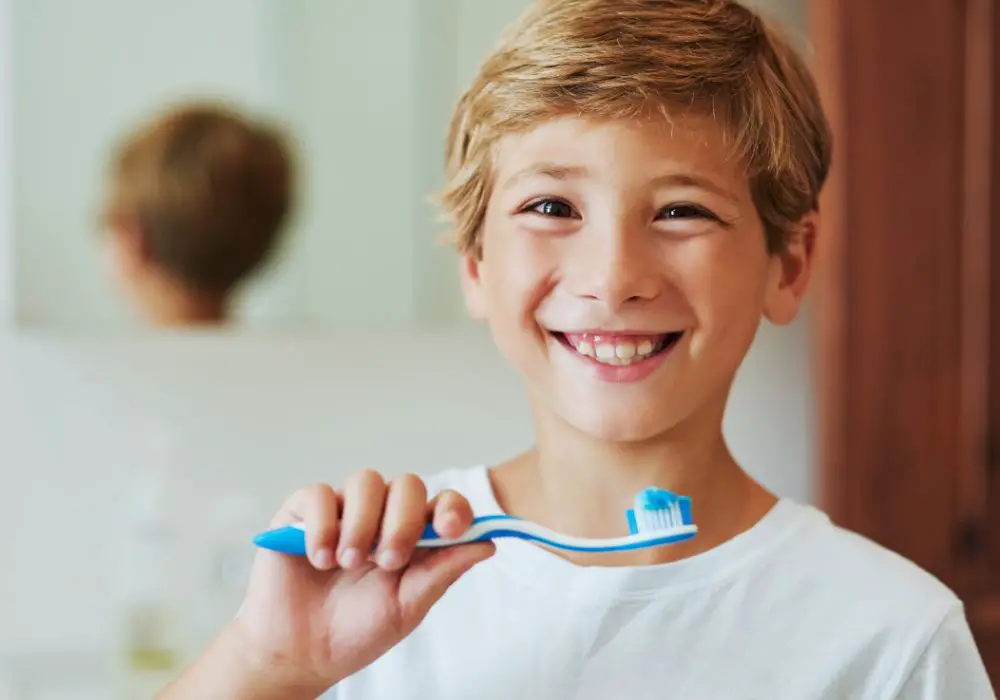
Brushing your teeth is an essential part of maintaining good oral hygiene. It helps to remove plaque, bacteria, and food particles from your teeth, preventing cavities, gum diseases, and bad breath. In this section, we will discuss the importance of brushing your teeth in detail.
Overall Dental Health
Brushing your teeth twice a day, once in the morning and once before bed, is recommended by dentists to keep your teeth and gums healthy. Brushing your teeth helps to remove the plaque that builds up on your teeth throughout the day. Plaque is a sticky film of bacteria that can cause tooth decay and gum disease if left untreated.
Brushing your teeth also helps to strengthen your tooth enamel, which is the hard outer layer of your teeth. Enamel protects your teeth from decay and damage, and brushing helps to keep it strong and healthy.
Prevention of Gum Diseases
Gum disease is a common dental problem that can lead to tooth loss if left untreated. Brushing your teeth helps to prevent gum disease by removing the plaque that can build up along your gum line. When plaque is not removed, it can harden into tartar, which can only be removed by a dentist.
Brushing your teeth also helps to stimulate your gums, which promotes healthy blood flow and keeps your gums healthy. Healthy gums are essential for healthy teeth, as they provide the support and protection that your teeth need to stay in place.
In conclusion, brushing your teeth is an essential part of maintaining good oral hygiene. It helps to prevent cavities, gum disease, and bad breath, while promoting overall dental health. Make sure to brush your teeth twice a day, once in the morning and once before bed, for optimal dental health.
Brushing Before Bed
Brushing your teeth before bed is an essential part of your oral hygiene routine. It helps remove the plaque and bacteria that have accumulated throughout the day. Here are some reasons why brushing before bed is important:
Removal of Day’s Plaque
During the day, plaque builds up on your teeth, which can lead to tooth decay and gum disease. Brushing before bed helps remove this plaque and prevents it from hardening into tartar, which can only be removed by a dental professional.
Preventing Overnight Bacteria Growth
When you sleep, your mouth produces less saliva, which makes it easier for bacteria to grow. Brushing before bed helps remove the bacteria that can cause bad breath, cavities, and gum disease. It also helps prevent the formation of a biofilm, which is a thin layer of bacteria that can form on your teeth and gums overnight.
To ensure that you are brushing correctly before bed, follow these tips:
- Use a fluoride toothpaste to help strengthen your teeth.
- Brush for at least two minutes, making sure to brush all surfaces of your teeth, including the fronts, backs, and chewing surfaces.
- Angle your brush at a 45-degree angle towards the gum line and use gentle circular motions.
- Don’t forget to brush your tongue to remove bacteria and freshen your breath.
By brushing before bed, you can help keep your teeth and gums healthy, prevent bad breath, and reduce your risk of tooth decay and gum disease.
Brushing After Waking Up
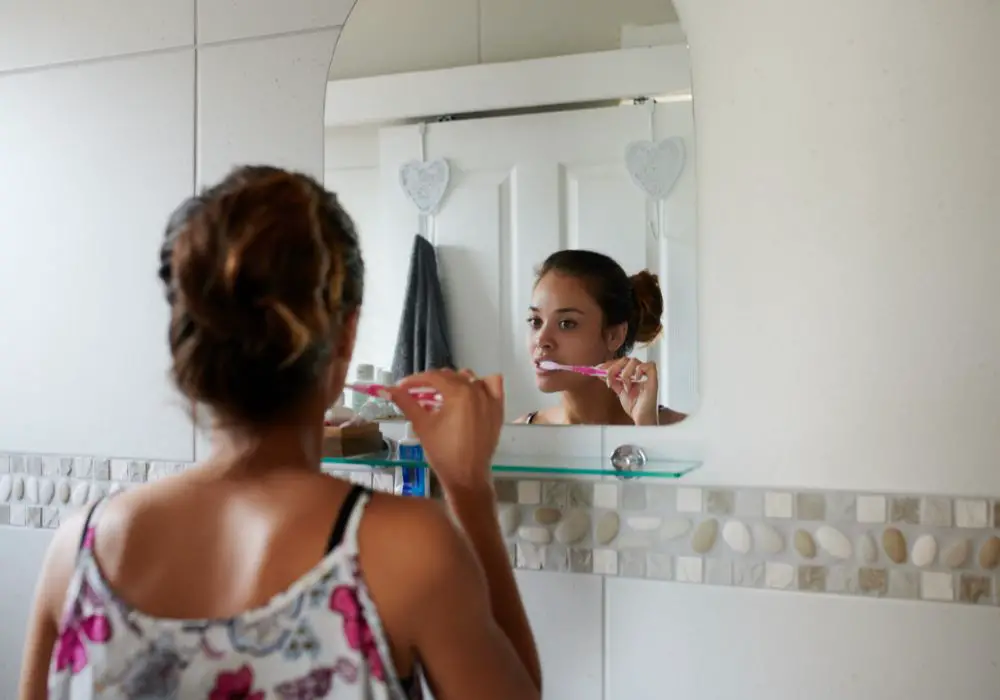
When you wake up in the morning, it’s important to brush your teeth to start the day off with fresh breath and a clean mouth. Here are some reasons why brushing after waking up is important:
Elimination of Morning Breath
Morning breath is a common occurrence that can be embarrassing and unpleasant. Brushing your teeth after waking up helps eliminate morning breath by removing the bacteria that builds up in your mouth while you sleep. This bacteria can cause bad breath and can also lead to tooth decay and gum disease if left unchecked.
Starting the Day Fresh
Brushing your teeth in the morning helps you start the day off feeling fresh and clean. It removes any food particles that may have gotten stuck in your teeth while you slept and helps prevent the build-up of plaque and tartar. Brushing your teeth in the morning also helps stimulate your gums, which can improve overall oral health.
To ensure that you are properly brushing your teeth in the morning, follow these steps:
- Wet your toothbrush and apply toothpaste.
- Brush your teeth for at least two minutes, making sure to brush all surfaces of your teeth and your tongue.
- Spit out the toothpaste and rinse your mouth with water.
- Rinse your toothbrush and store it in a clean, dry place.
By following these steps, you can ensure that you are starting your day off with a clean and healthy mouth.
Proper Brushing Techniques

When it comes to maintaining good oral hygiene, brushing your teeth is one of the most important habits you can develop. However, it’s not enough to simply brush your teeth – you need to do it correctly to ensure that you’re effectively removing plaque and preventing cavities. Here are some tips for proper brushing techniques:
Choosing the Right Toothbrush
First, make sure you’re using the right toothbrush. Look for a toothbrush with soft bristles, as these are gentler on your teeth and gums. Hard bristles can actually damage your tooth enamel and cause gum recession. You can choose between a manual or electric toothbrush, but make sure whichever one you choose has the American Dental Association (ADA) seal of approval.
Appropriate Brushing Time
Next, it’s important to brush your teeth for the appropriate amount of time. Aim for two minutes of brushing, twice a day. Many people rush through brushing, but taking the time to thoroughly clean your teeth can make a big difference in your oral health. Use a timer or an electric toothbrush with a built-in timer to help you keep track of how long you’re brushing.
When you’re brushing, use a pea-sized amount of fluoride toothpaste. Angle your toothbrush towards your gum line at a 45-degree angle and brush in gentle, circular motions. Don’t brush too hard – this can damage your gums. Be sure to brush the front, back, and chewing surfaces of your teeth. Use a tongue scraper or your toothbrush to clean your tongue, as bacteria can accumulate there and cause bad breath.
By following these proper brushing techniques, you can help keep your teeth and gums healthy and prevent dental problems down the line.
Potential Risks of Not Brushing
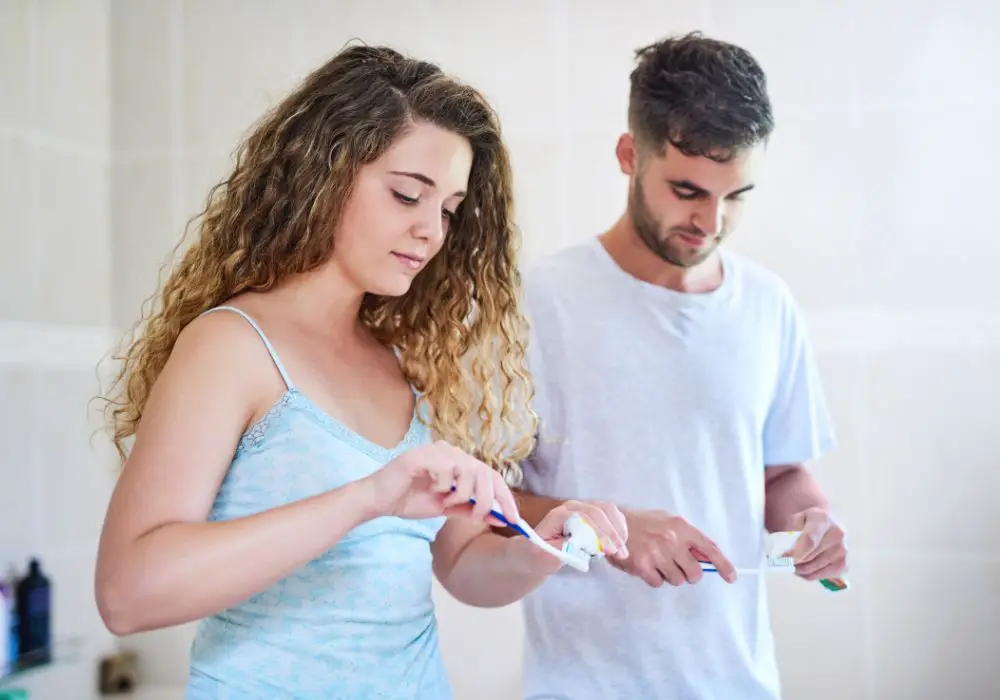
Not brushing your teeth regularly can have several negative consequences on your oral health. In this section, we will discuss two of the most significant risks of not brushing your teeth: tooth decay and periodontal disease.
Tooth Decay
Tooth decay is a common problem that occurs when bacteria in your mouth produce acid that erodes your tooth enamel. When you don’t brush your teeth regularly, the bacteria in your mouth can accumulate and form a sticky film called plaque. Over time, the acid produced by the bacteria can wear away your tooth enamel and cause cavities.
If left untreated, cavities can become larger and deeper, eventually leading to tooth loss. In addition, untreated tooth decay can cause infections, abscesses, and other serious oral health problems.
Periodontal Disease
Periodontal disease, also known as gum disease, is a serious infection that affects the tissues that support your teeth. It is caused by the buildup of plaque and bacteria on your teeth and gums. If left untreated, periodontal disease can lead to tooth loss and other serious health problems.
The early stage of periodontal disease is called gingivitis, which causes red, swollen gums that bleed easily. If left untreated, gingivitis can progress to periodontitis, which causes your gums to pull away from your teeth and form pockets. These pockets can become infected, leading to bone and tooth loss.
In addition to tooth decay and periodontal disease, not brushing your teeth regularly can also cause bad breath, stained teeth, and other cosmetic problems. Therefore, it is essential to brush your teeth at least twice a day to maintain good oral health.
Frequently Asked Questions
When is the best time to brush your teeth in the morning?
The best time to brush your teeth in the morning is after breakfast. This helps to remove any food particles that may have been left in your mouth after eating.
How long should you wait to brush your teeth after eating?
It is recommended to wait at least 30 minutes after eating before brushing your teeth. This is because the acid in your mouth can weaken your tooth enamel, and brushing immediately after eating can cause damage to your teeth.
Should you brush your teeth before or after breakfast?
It is best to brush your teeth after breakfast to remove any food particles that may have been left in your mouth after eating. However, if you prefer to brush your teeth before breakfast, make sure to rinse your mouth with water after eating to remove any remaining food particles.
What are the effects of not brushing your teeth at night?
Not brushing your teeth at night can lead to the buildup of plaque and bacteria in your mouth, which can cause tooth decay, gum disease, and bad breath. It is important to brush your teeth before bed to remove any food particles and bacteria that may have accumulated throughout the day.
Is it better to brush your teeth before bed or after waking up?
It is important to brush your teeth both before bed and after waking up. Brushing before bed removes any food particles and bacteria that may have accumulated throughout the day, while brushing in the morning helps to freshen your breath and remove any bacteria that may have accumulated overnight.
Are you supposed to brush your teeth twice a day?
Yes, it is recommended to brush your teeth twice a day for at least two minutes each time. This helps to remove any food particles and bacteria that may have accumulated throughout the day, and helps to prevent tooth decay and gum disease.

